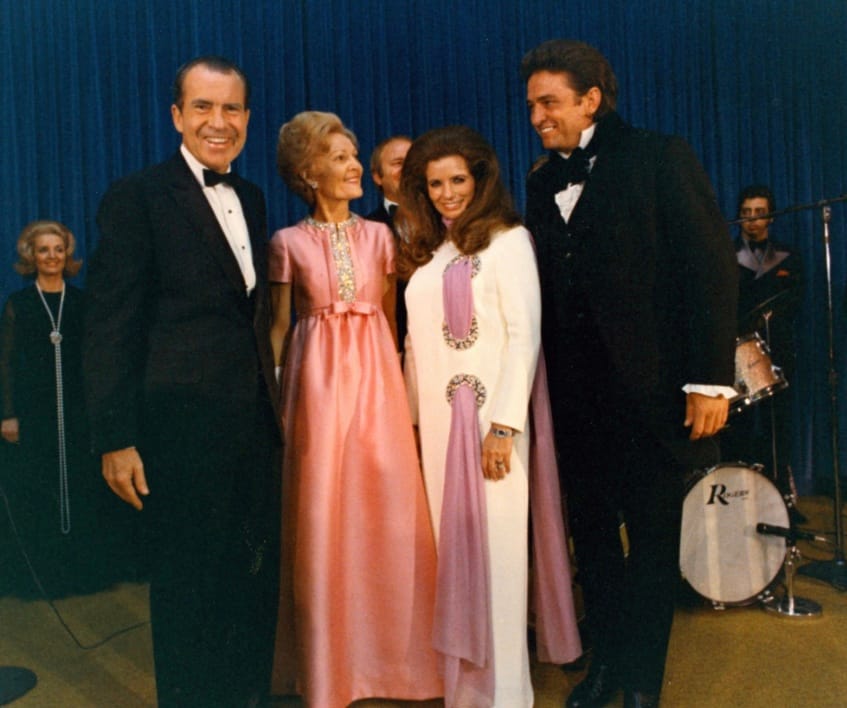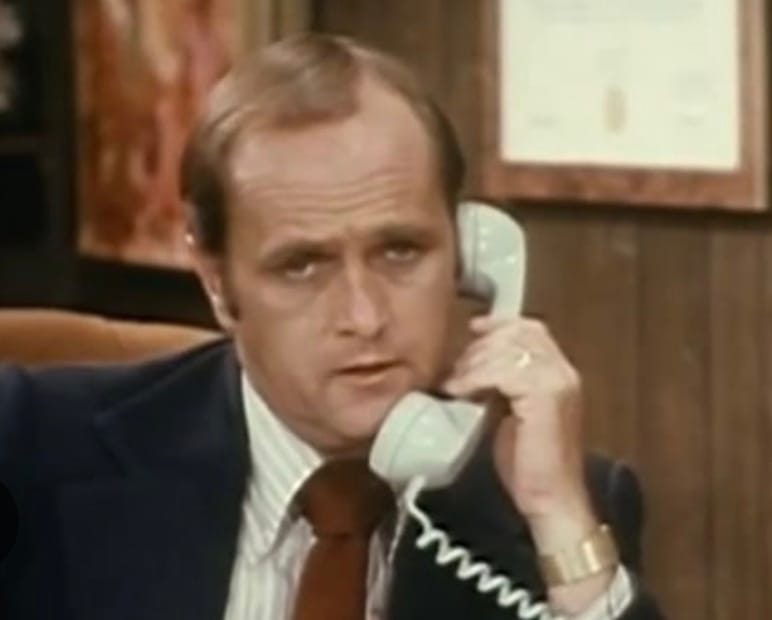A Dove with Claws
Tricky Dick and the Man in Black, superheroes, and phone comedy, oh my.

Yesterday I watched the Netflix documentary “Tricky Dick and the Man in Black.” It’s about how President Richard Nixon thought he could basically use Johnny Cash to gain support from Southern voters at a time when the country was seriously polarized about American military involvement in Vietnam (among other things).
Johnny Cash didn’t identify with a political party, and he was content to leave people guessing whether he was a Democrat or Republican. But he did grow up poor in Arkansas, in a family that leaned conservative and on faith. Johnny considered himself a patriot, but in the late sixties, people were divided on what that meant. Were you a patriot if you wanted the Vietnam War to continue to the bitter, bloody end? Or were you a patriot if you wanted peace?
At the time, Nixon was paranoid about peace protesters, and his advisor Patrick Buchanan told him he needed to stand up to them or his presidency would be broken. So Nixon got on the air and said he wasn’t going to let American policy be dictated by the people in the streets, but he wanted to assure the public that he would be looking to achieve a just and lasting peace in Vietnam. After that, Johnny told an audience at “The Johnny Cash Show” that he stood with the president. Nixon was grateful for his support and wrote him to say so. Buchanan advised that the next step should be to bring Cash and his band to the White House for a performance “of some of that redneck music” in the East Room. When that invite was extended, Johnny and June couldn’t believe it. They had played Folsom Prison in January 1968, and had associated themselves with the downtrodden and forgotten. They were about to become parents to their first child, a son. The world was a troubling swirl of confusion and anger and hate. And now…the White House? Johnny was a rebel, but this was a moment where he was wrestling with what he stood for, especially when he learned that Nixon wanted him to play “Okie from Muskogee,” which extolled small-town conservative values, and “Welfare Cadillac,” which ridiculed people on welfare.
Prior to their White House performance, the Cashes had played in Vietnam and seen the horrors there firsthand. A backup singer in their band had also lost a son in the conflict, and from the couple’s point of view it also seemed that the war wasn’t winding down at all, despite what was portrayed in the news. After their return, pastor Billy Graham was struggling with his rebellious son, and asked Johnny for help reaching him. Graham came to dinner at the Cash home, Johnny gave him advice, and Graham, in turn, advised Cash to find a way of “speaking good to youth.” After a bit of reflection, Cash decided not to sing what Nixon wanted, but what was on his heart. No one in his band knew what that would be until he got on stage in the East Room. That night, he debuted a song called “What is Truth?” The tune made Nixon squirm.
Here are the lyrics:
The old man turned off the radio
Said, "Where did all of the old songs go
Kids sure play funny music these days
They play it in the strangest ways"
Said, "it looks to me like they've all gone wild
It was peaceful back when I was a child"
Well, man, could it be that the girls and boys
Are trying to be heard above your noise?
And the lonely voice of youth cries "What is truth?"
A little boy of three sittin' on the floor
Looks up and says, "Daddy, what is war?"
"Son, that's when people fight and die"
The little boy of three says "Daddy, why?"
A young man of seventeen in Sunday school
Being taught the golden rule
And by the time another year has gone around
It may be his turn to lay his life down
Can you blame the voice of youth for asking
"What is truth?"
A young man sittin' on the witness stand
The man with the book says "Raise your hand"
"Repeat after me, I solemnly swear"
The man looked down at his long hair
And although the young man solemnly swore
Nobody seems to hear anymore
And it didn't really matter if the truth was there
It was the cut of his clothes and the length of his hair
And the lonely voice of youth cries
"What is truth?"
The young girl dancing to the latest beat
Has found new ways to move her feet
The young man speaking in the city square
Is trying to tell somebody that he cares
Yeah, the ones that you're calling wild
Are going to be the leaders in a little while
This old world's wakin' to a new born day
And I solemnly swear that it'll be their way
You better help the voice of youth find
"What is truth?"
And the lonely voice of youth cries "What is truth?"
Nixon underestimated the Man in Black, who was well aware of what the president stood for. He could not have expected that he would have a front row seat to a performer who'd quietly call him out in a room full of people who were dressed to the nines. Johnny didn’t like being used. He didn’t like being lied to. So he asked an honest and essential question that spoke to the moment. Surely he was thinking of his month-old son, who lay sleeping in a bedroom upstairs. What world would that newborn eventually inherit, and what could he do as a songwriter to make it a better place for him?
Writing prompt: Write your super hero origin story. Be sure it includes your super hero name, your magical powers, and maybe a little bit on your costume. Do you have a kryptonite? A nemesis? A specific wrong you're trying to right? Get it all down. Anyone who shares it with me gets a handmade notebook made by yours truly. What better place to scribble down more writing prompt goodness?
On Music's Power to Connect

“When there’s a perceived difference among people, a feeling of superiority tends to follow – an urge to rank one higher than the other. In the work of playing in prisons for example, there’s often this false idea that the musicians are offering a priceless gift to the poor incarcerated communities, and that the energy only flows one way. This is never, ever true. The relationship of performer and audience is always a reciprocal one, no matter the background or population. Everyone involved is actually supposed to come out of a performative experience a winner; no matter where, no matter who, no matter how. Music has this inherent power to bring humans together – at a concert, whether onstage or off, we are all equal.”
– Rhiannon Giddens
Endnotes

If you’re looking for a laugh: Bob Newhart died yesterday at the age of 94. If you need to lighten the load, for whatever reason, Google "Bob Newhart on the phone". Those bits are funny (I swear), a. because he is so chronically deadpan, and b. because you only hear his half of the bit, so you’re left imagining what the person on the other end of the line is saying. There’s a good one where he’s a Madison Avenue ad man trying to convince Abe Lincoln that he needs to say four score and seven instead of 87 in the Gettysburg Address. “It’s meant to be a grabber…Just do the speech the way Charlie wrote it, would ya?”
The latest Seine update: Bravo to Anne Hidalgo, mayor of Paris, who swam in the Seine this week, just as she said she would in advance of the Olympic Games. After the swim, she said, “The Seine is exquisite. The water is very, very good. A little cool, but not so bad.”
Where I hope you’ll donate this week: For a half-century, American Rivers has been a leader in protecting and restoring rivers throughout the country. Right now, rivers are threatened by climate change, unnecessary damns, pollution, floods, and outdated policies. American Rivers is working to change that, so please if you can, donate what you can to help them continue this work.
Paige Bowers Newsletter
Join the newsletter to receive the latest updates in your inbox.




